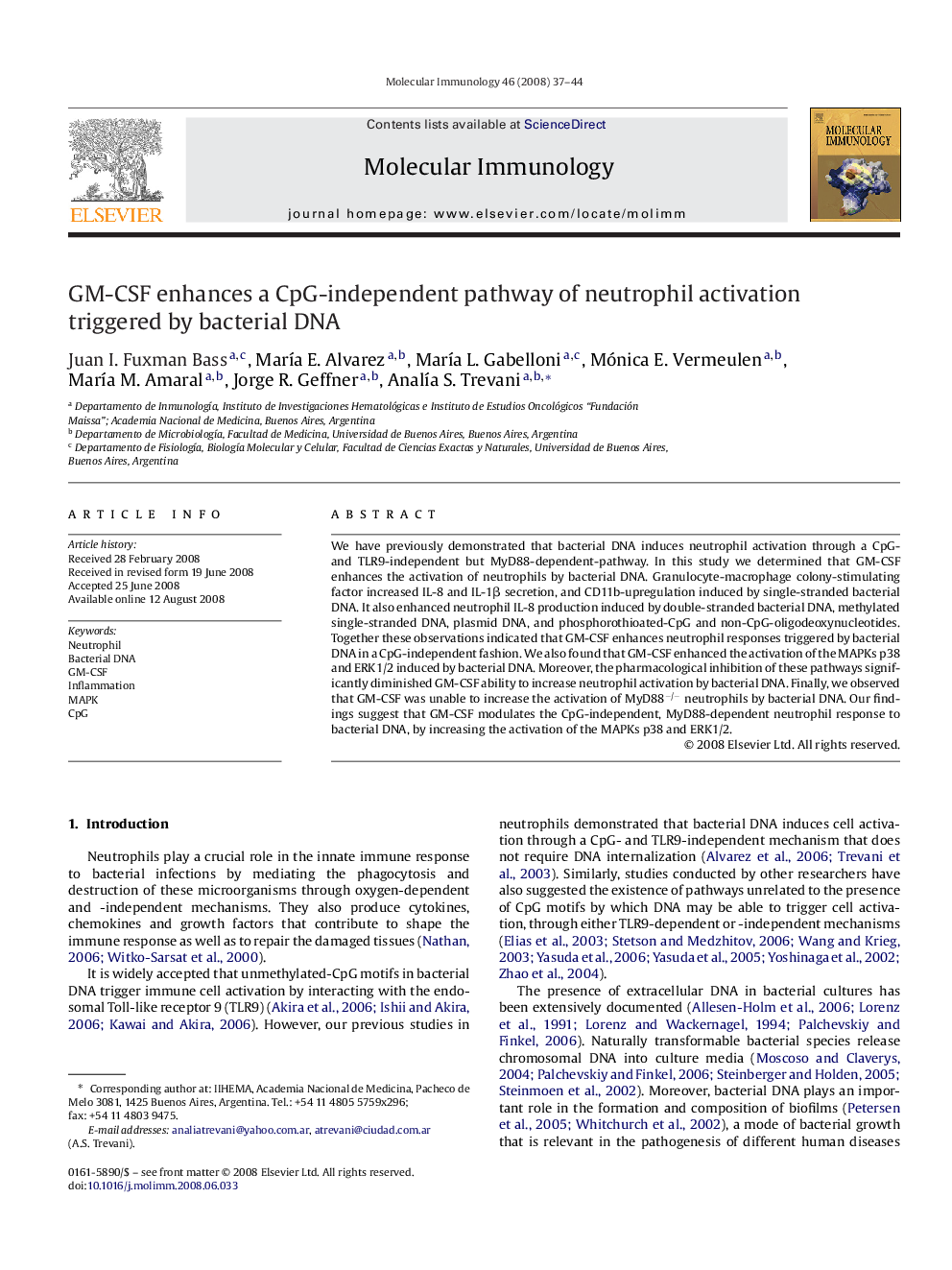| Article ID | Journal | Published Year | Pages | File Type |
|---|---|---|---|---|
| 2832718 | Molecular Immunology | 2008 | 8 Pages |
Abstract
We have previously demonstrated that bacterial DNA induces neutrophil activation through a CpG- and TLR9-independent but MyD88-dependent-pathway. In this study we determined that GM-CSF enhances the activation of neutrophils by bacterial DNA. Granulocyte-macrophage colony-stimulating factor increased IL-8 and IL-1β secretion, and CD11b-upregulation induced by single-stranded bacterial DNA. It also enhanced neutrophil IL-8 production induced by double-stranded bacterial DNA, methylated single-stranded DNA, plasmid DNA, and phosphorothioated-CpG and non-CpG-oligodeoxynucleotides. Together these observations indicated that GM-CSF enhances neutrophil responses triggered by bacterial DNA in a CpG-independent fashion. We also found that GM-CSF enhanced the activation of the MAPKs p38 and ERK1/2 induced by bacterial DNA. Moreover, the pharmacological inhibition of these pathways significantly diminished GM-CSF ability to increase neutrophil activation by bacterial DNA. Finally, we observed that GM-CSF was unable to increase the activation of MyD88â/â neutrophils by bacterial DNA. Our findings suggest that GM-CSF modulates the CpG-independent, MyD88-dependent neutrophil response to bacterial DNA, by increasing the activation of the MAPKs p38 and ERK1/2.
Related Topics
Life Sciences
Biochemistry, Genetics and Molecular Biology
Molecular Biology
Authors
Juan I. Fuxman Bass, MarÃa E. Alvarez, MarÃa L. Gabelloni, Mónica E. Vermeulen, MarÃa M. Amaral, Jorge R. Geffner, AnalÃa S. Trevani,
